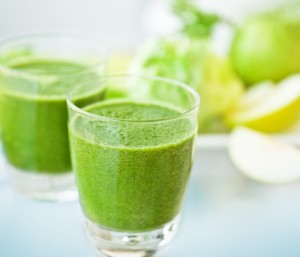Kidney Stones Prevalence
Around 12% of men and 4% of women in the UK suffer from kidney stones. This number is rising. We find clinical research into links with oxalate foods to kidney stones and fibromylagia rising. With kidney stones on the rise, this is for good reason.
Oxalate Kidney Stones Diet
Saudi Arabia has one of the highest kidney stone rates in the world. Modern lifestyle is the biggest contributing factor. We’ll look at oxalates in food and their role in the Oxalate Kidney Stones Diet separately.
The exact cause of kidney stones cannot always be found. A poor diet and dehydration are major risk factors. In many cases, getting a kidney stone is a one time thing and does not occur again. Increasing fluid intake can cut the incidence of getting another stone in half.
VGH researchers recently tried to unravel role of gut bacteria in kidney stones.
Oxalate Kidney Stones Diet
Is our green juice putting you at risk? [tweetthis hidden_hashtags=”#greenjuice #health”]Oxalates & Kidney Stones -is your green juice putting you at risk?[/tweetthis]
Oxalates and Oxalate foods
Are vegans, vegetarians or green juice lovers at greater risk of kidney stones? [tweetthis]Are vegans, vegetarians or green juice lovers at greater risk of kidney stones?[/tweetthis]
The part of the plant – i.e. stem or leaf, bran or endosperm – genetic differences between plant cultivars, soil conditions, and time of year harvested can account for differences in oxalate amounts if (plant based) foods as noted by researchers.
Green juice said, cooking method can also make a big difference in foods with a high content of soluble oxalate (which might be the only type that is absorbed at a significant rate in most people). Boiling or steaming and discarding the water after cooking can reduce the amount of oxalate especially in the leaves of leafy greens.
Oxalate is generally not found in animal products. Many plant foods are moderate or high and in some cases, extremely high in oxalate content e.g. spinach, beets, beet greens, sweet potatoes, peanuts, rhubarb, swiss chard. Despite this, a study from the Harvard School of Public Health found that people following a plant-based eating pattern had a lower occurrence of kidney stones. So, other than keeping hydrated, drinking plenty of fluid, how else can we avoid oxalate toxicity found in oxalate kidney stones diet?
- Boil high-oxalate leafy greens and discard the water.
- Meet the RDA for calcium. Eat high-calcium foods or take calcium with meals; calcium citrate if you have a history of calcium-oxalate stones.
RDA Calcium – Men (19-70 yo) 1000mg Women (19-50 yo) 1000mg 51+ 1200mg
High Calcium foods
The main calcium contenders are milk, yogurt, and cheese, but dairy should not be the only dietary go-to to fill up on this nutrient.
Non Dairy Sources of Calcium suitable for vegan diets Leafy greens
Kale, seaweed, turnip greens, seafood such as:
sardines, small fish with bones, legumes such as white beans and fruit – died figs, also contain calcium and many foods
(breakfast cereals bachelorarbeit schreiben lassen kosten) and beverages such as rice milk, coconut milk, are fortified with the mineral.
Your body needs vitamin D to absorb calcium. For this reason, some calcium supplements contain vitamin D.
Vitamin K2
Vitamin K2 plays a beneficial role in bone metabolism and keeps calcium in the bones [tweetthis]Vitamin K2, plays a beneficial role in bone metabolism and keeps calcium in the bones[/tweetthis] As Vitamin k2 keeps calcium where it belongs and out of the soft tissues we should look at keeping levels high ghostwriter masterarbeit. So really consider cooking methods of leafy green high oxalate foods, like spinach. For example, instead of eating consistently high quantities of raw spinach in, for example, green juices and smoothies we should keep these greens for vitamin K2. We can mix up our methods of intake by steaming spinach leaves and using raw olive oil and lemon, for example, to eat it with.
- Do not include large amounts of high-oxalate vegetables in your green smoothies.
- Do not take large amounts of vitamin C. Oxalate is a waste material that needs to be excreted by the kidneys. Since most kidney stones affecting the general public are calcium oxalate, vitamin C degradation may be one of the main causes there hausarbeit schreiben lassen. Problems recycling the oxidized form of vitamin C usually stem from some type of oxidative damage or chronic infection, both of which, are very common, of course.
Oxalate Kidney Stones Diet. Kidney Stones & Protein Intake
Are low carb dieters, Paleo or high protein diet followers at greater risk of kidney stones?
Do high protein diets have an adverse effect on kidney function?
Several studies suggest that kidney stones themselves are not caused by a high protein intake alone but by an underlying metabolic abnormality. Ketogenic diets, on the other hand, can contribute to kidney stones via other mechanisms.
There is some evidence that reducing protein in people that have pre-existing renal disease may have some benefit. Certainly, in the case of those with renal disease, reduced daily protein intake is guideline dependent on the stage of renal disease or failure bachelor arbeit schreiben lassen. Monitoring these levels with great care is typically managed in your personalised portfolio at Susannah Makram Clinics.
Excess protein intake increases excretion of substances that could potentially increase kidney stones, like calcium and uric acid. One study found that high protein diets are associated with increased uric acid and calcium output in the urine. In the study none of the subjects actually developed kidney stones hausarbeit schreiben lassen erfahrung. So in theory the subjects excreting substances that could contribute to kidney stone formation did not actually develop any kidney stones.
This good study from the Journal of Nutrition and Metabolism in 2005 found no evidence that high protein diets increase glomerular pressure or hyperfiltration or contribute to kidney disease in any other way in healthy individuals.



